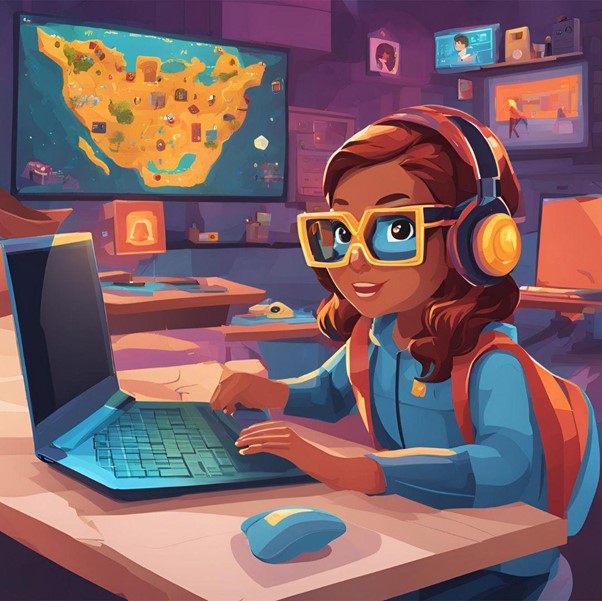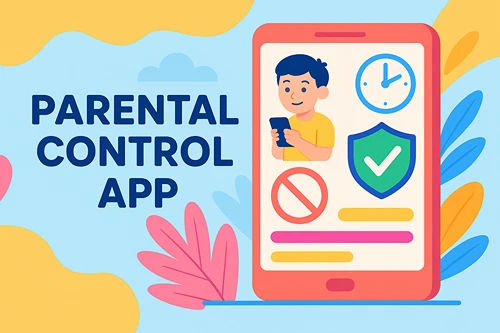Cyber Heroes: Games That Teach Online Safety
For children and teenagers, they open a huge space where they can study, communicate, and even play. But as it is true with every playground the internet also has its downside or advantages depending on how one takes it. From hate baiting and stalking to viruses and Trojan horses, simply going for a sail on the World Wide Web can be a real journey for the young mind.
And so, we come to the notion of ‘Cyber Heroes’ – respective games which are entirely dedicated to the establishment of proper net conduct.
Perhaps most parents may not appreciate the impact that games can have on education. However, the research revealed that I was rather surprised to know that games are extremely useful for learning purposes. They intervene in children’s need for play and challenge and reward them as they successfully perform through the games.
But let’s take a closer look at how these “Cyber Hero” games in particular help children learn what they need to know and gain the skills they need to protect themselves when they use the Internet. Here’s a closer look:
Problem-Solving Through Play:
Most of the online safety games are in the form of adventure games. In their turn, learners may get exposed to a territory in the virtual space, performing some actions that implies the solving of certain puzzles, and confronting various types of potentially malicious scenarios on the Internet. Here, children are able to gain good experiences of decision making processes.
They make decisions, they take chances, some are big and some small and there are always repercussions to actions. Such an approach enables the learners to appreciate better aspects of the topic and develop personal and constructive lessons on cyberbullying, passwords, and even hatred content.
Building Confidence and Communication Skills:
Games can also have an enabling effect on children where they allow the kid to have some control or agency within the digital terrain. Thus, by identifying all the challenges and overcoming online foes such as malware monsters or phishing phantoms, they become confident in approaching different online situations. The use of such a sense of empowerment allows the child to talk freely with the parents or the guardian in case of experiencing any issues in the use of the internet.
Challenges and Considerations:
It is necessary underlined that ‘Cyber Hero’ games present precious opportunities however There are some difficulties. However, most of these games are greatly influenced by age appropriateness and engagement. Simpler cases might overwhelm young children while the elder kids might not be interested in very simple games. Finding the right level is highly important.

However, the free use of games cannot substitute for frank discussions about internet security. That is why parents must be very involved in the social activities of their kids. Talking about content and points of concern in the games and setting up the proverbial dos and don’ts of online interaction are in order in order to set up safety protocols.
Games that Teach Online Safety
Here are a few games that teach kids about staying safe.
- Cyber-Five: Designed for younger kids, the focus is on basic rules of online safety, such as protecting personal information, being kind online, asking a trusted adult, standing up to cyberbullying, and not talking to strangers.
- Webonauts Internet Academy: Developed by PBS Kids, this game guides children through different online scenarios to teach and test online behavior.
- Common Sense Media (Digital Passport): Online activities that teach responsible communication, safety and security, privacy, and creative credit.
- Be Internet Awesome (Google): In Interland, players embark on adventures in a colorful virtual world. They learn about privacy, sharing, digital citizenship, and how to deal with cyberbullying.
- Netsmartz Kids: Developed by the National Center for Missing and Exploited Children, characters like Clicky, Nettie, and Webster help children understand internet safety tips in a fun way.
- ThinkUKnow (Cyber Café): Helps kids learn about online safety by simulating real-life situations in a café setting. They interact with different characters and face decisions about social media, gaming, and chatting online.
Beyond the Game: Expanding Online Safety Knowledge
This goes a long way beyond virtual worlds, where “Cyber Hero” games reside. These can be used just as a background and beginning point for the next levels of education. Here are some additional ways families can build upon the foundation established by these games:
- Family Movie Nights: Select programmes that depict issues to do with internet safety and bullying, which will act as discussion points to teach responsible internet usage.
- Digital Citizenship Workshops: Huge numbers of libraries and schools conduct specific workshops for children on how to remain safe and be responsible users of the internet.
Conclusion:
Through the “Cyber Hero” games children enjoy a number of different games while at the same time learning helpful lessons about the online world. These games help young minds to have a tool of engaging in their affairs the digital way through fun, while at the same time having the appropriate knowledge to guide them through the activities they engage in the digital world.
As mentioned, games alone are not the solution, but they constitute part of the solution. A combination of effective communication, constructive instructions from parents, and handwork are the key ideas that can help children avoid any dangerous experience on the Internet. Teach me then and let’s work hand in hand to prepare our young ones to become real ‘Cyber Heroes.”





